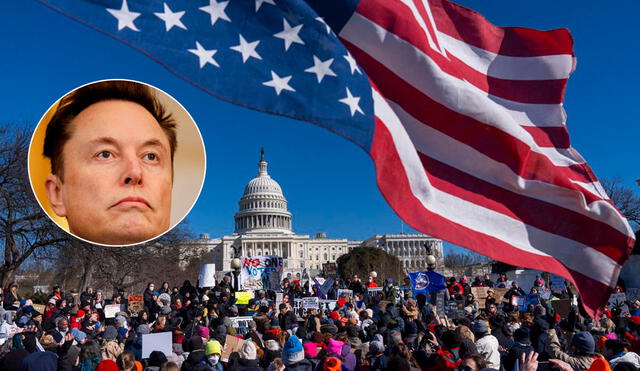Elon Musk’s DOGE accused of using IRS to spy on taxpayer data — Lawsuit seeks justice
The Department of Government Efficiency (DOGE) is accused of using the IRS to spy on taxpayer data, sparking a lawsuit that raises concerns about privacy rights and government surveillance.

The Department of Government Efficiency (DOGE) is facing serious allegations of attempting to use the Internal Revenue Service (IRS) to spy on taxpayer data. This lawsuit, filed by concerned citizens and advocacy groups, claims that the DOGE's actions are a violation of privacy rights and an abuse of power. The plaintiffs argue that the DOGE's surveillance tactics are not only illegal but also undermine the trust between taxpayers and the government.
The lawsuit has sparked a heated debate about the balance between national security and individual privacy. Critics of the DOGE's actions argue that such surveillance measures are a slippery slope that could lead to further erosion of civil liberties. On the other hand, supporters of the DOGE claim that these measures are necessary to combat tax evasion and other financial crimes. As the legal battle unfolds, the outcome of this case could have far-reaching implications for privacy rights and government surveillance practices in the United States.

Musk's DOGE is seeking access to taxpayer data at the IRS. Photo: Las Vegas Review-Journal.
DOGE's alleged use of IRS for surveillance sparks privacy concerns
The Department of Government Efficiency (DOGE) is under fire for allegedly using the Internal Revenue Service (IRS) to spy on taxpayer data. This lawsuit, brought forth by a coalition of concerned citizens and advocacy groups, claims that the DOGE's actions constitute a severe breach of privacy rights and an abuse of governmental power. The plaintiffs argue that the DOGE's surveillance tactics are not only illegal but also erode the trust between taxpayers and the government.
The lawsuit has ignited a fierce debate about the delicate balance between national security and individual privacy. Critics of the DOGE's actions contend that such surveillance measures set a dangerous precedent, potentially leading to further encroachments on civil liberties. They argue that the government's ability to access sensitive taxpayer information without proper oversight or justification is a clear violation of constitutional rights.
On the other hand, supporters of the DOGE maintain that these surveillance measures are essential for combating tax evasion and other financial crimes. They argue that the DOGE's actions are necessary to ensure that all taxpayers comply with the law and that the government can effectively pursue those who seek to defraud the system. According to this perspective, the benefits of enhanced surveillance outweigh the potential risks to individual privacy.

Musk's DOGE team to gain access to sensitive IRS data amid controversy. Photo: KMTR.
Lawsuit against DOGE highlights tension between security and privacy
As the legal battle unfolds, the outcome of this case could have significant implications for privacy rights and government surveillance practices in the United States. If the plaintiffs succeed, it could lead to stricter regulations and oversight of government surveillance activities, ensuring that taxpayer data is protected from unwarranted intrusion. Conversely, if the DOGE prevails, it could embolden the government to expand its surveillance capabilities further, potentially at the expense of individual privacy.
The case also underscores the broader issue of how to balance the need for national security with the protection of civil liberties. In an era where technology enables unprecedented levels of surveillance, finding the right equilibrium between these competing interests is more critical than ever. The outcome of this lawsuit could serve as a landmark decision, shaping the future of privacy rights and government surveillance in the United States. The allegations against the DOGE for using the IRS to spy on taxpayer data have brought to light the ongoing tension between national security and individual privacy.
As the lawsuit progresses, it will be crucial to monitor how the courts address these complex issues and what precedents will be set for the future. The resolution of this case could have far-reaching consequences, not only for the parties involved but also for the broader landscape of privacy rights and government surveillance in the United States.












